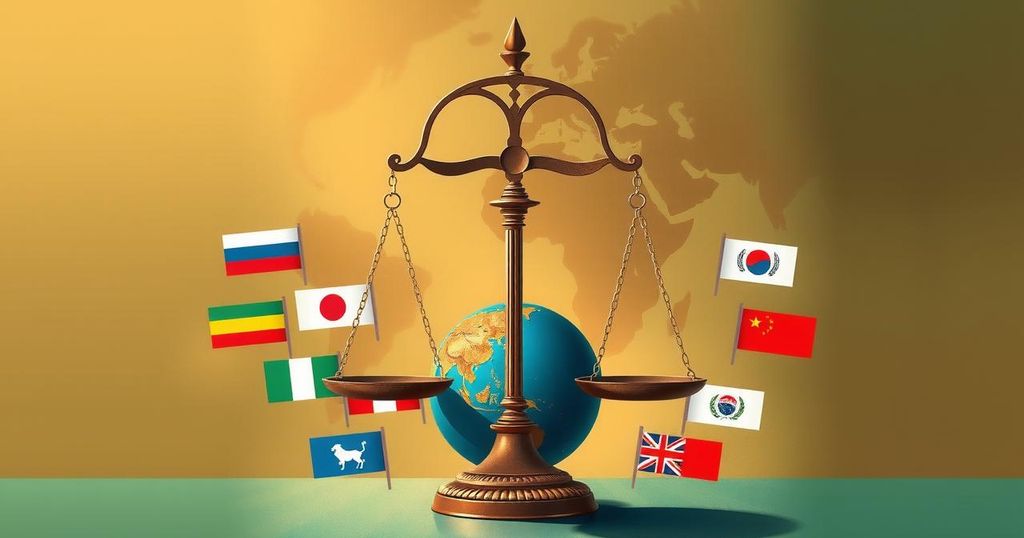The Global South Must Support Sudan’s ICJ Case Against the UAE

This article discusses Sudan’s case against the UAE at the ICJ, accusing it of genocide complicity. Sudan alleges UAE support for the RSF, implicated in mass atrocities against the Masalit ethnic group. The article emphasizes the importance of Global South solidarity and accountability, warning against failing to support Sudan, which could lead to further exploitation by more powerful actors.
The Global South must rally behind Sudan’s case at the International Court of Justice (ICJ), accusing the United Arab Emirates (UAE) of genocide complicity. This critical action follows the ICJ’s announcement on March 6 that Sudan alleges the UAE’s backing of the Rapid Support Forces (RSF) constitutes abetting war crimes. Sudan contends the RSF has perpetrated widespread violence against the Masalit ethnic group, mirroring atrocities from the early 2000s Darfur conflict.
The allegations include detailed accusations of the RSF’s crimes, where forensic evidence and reports from the Raoul Wallenberg Centre for Human Rights and Human Rights Watch present systematic killings and severe human rights abuses. Notably, from May to June 2023, approximately 15,000 Masalit were reported as massacred and 500,000 displaced—echoing past atrocities committed in the region.
Moreover, the evidence illustrating the UAE’s involvement is substantiated by credible reports from the U.N. Security Council and findings that indicate weapon transfers to the RSF by the UAE, driven by a significant military base in Chad. Flight data substantiates this claim, revealing multiple air transports from the UAE.
Recent investigations have uncovered a covert Emirati drone base near the Sudanese border, facilitating RSF operations, which have heightened civilian casualties. The escalating conflict brings to light the UAE’s assertive role, as U.S. officials confirm its continued military support despite prior commitments to end assistance to the RSF.
The geopolitical imbalance underscores the deepening crisis, as Sudan, with a GDP of $30 billion, finds itself dwarfed by the UAE’s economic power of $569 billion. This disparity complicates Sudan’s struggle for justice within an already weakened international legal framework. Other nations, including South Africa, have initiated similar actions, garnering substantial support that Sudan now seeks.
The failure of countries, which rallied behind South Africa, to extend similar backing to Sudan would undermine global solidarity principles and perpetuate an unjust application of international law. While the Sudanese Armed Forces have committed their own violations, support for the ICJ case should focus on the principle of accountability for the UAE, which could exacerbate conflicts across the region.
An ICJ ruling in favor of Sudan could restore the Court’s credibility. However, the UAE may invoke its reservation under the Genocide Convention to evade accountability. Critics argue such reservations contradict the convention’s objectives. Without a decisive endorsement from the Global South, a power vacuum could arise, leading to further exploitation by dominant actors, ultimately imperiling Sudanese civilians in this international geopolitical struggle.
In essence, the support for Sudan’s case against the UAE at the ICJ represents a vital test of global justice principles. The international community, particularly the Global South, is called upon to uphold accountability and resist the encroachment of powerful nations on vulnerable states. By advocating for this case, countries can not only honor Sudan’s plight but also reinforce the foundations of an equitable international legal system, ensuring justice prevails over geopolitics.
Original Source: foreignpolicy.com








